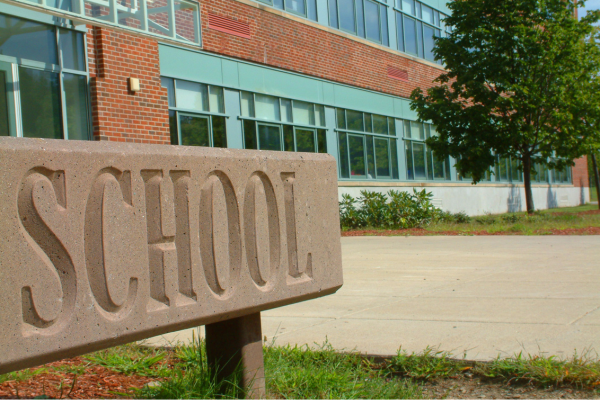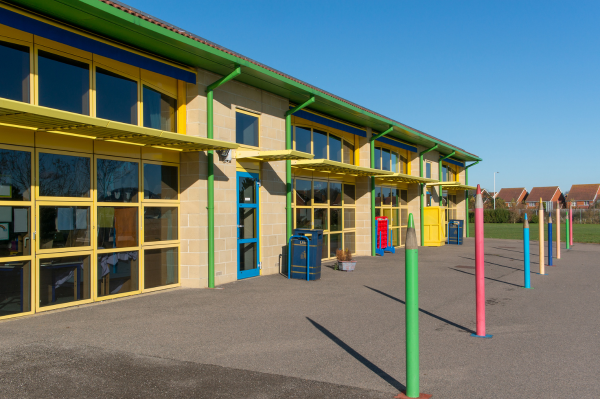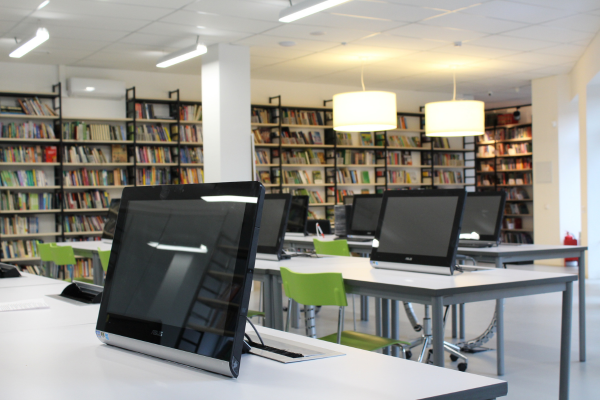Energy Efficiency in Schools: Best Practices
By Switch365 - (2024-10-10)

Top Strategies for Energy Efficiency in Schools
Schools play a vital role in shaping the future, not only through education but also by setting an example in sustainability. Increasing school energy efficiency has become more important than ever as energy costs rise and climate change concerns grow. Schools can reduce energy consumption save money and create healthier learning environments for students by implementing sustainable practices. Here are some best practices schools can adopt to enhance their energy efficiency.
Conduct an Energy Audit
The first step in improving energy efficiency is understanding how much energy the school currently uses and where inefficiencies lie. To provide a clear picture of a school's consumption an energy audit will be beneficial to identify patterns and highlight areas where improvements can be made. Low-cost energy audits that can identify quick wins, like upgrading lighting or improving insulation.
Upgrade to Energy-Efficient Lighting
One of the easiest and most cost-effective ways for schools to reduce energy consumption is switching to energy-efficient lighting. LEDs use up to 75% less energy than traditional incandescent bulbs and last significantly longer, meaning schools will save money on both electricity and replacement costs. To further reduce energy waste installing motion sensors in classrooms, hallways and restrooms will ensure lights are only on when needed.

Enhance Insulation and Seal the Building's Exterior
Significantly reduce the energy needed for heating and cooling with proper insulation. To prevent heat loss in colder months and keep buildings cool on hot days schools should assess the insulation in walls, roofs and windows. Double or triple-glazed windows, weather stripping and sealing any gaps or cracks in the building can also make a noticeable difference in energy consumption.
Utilise Energy Efficient Heating and Cooling Systems
Some of the largest energy consumers in schools are heating, ventilation and air conditioning (HVAC) systems. Upgrading to high-efficiency HVAC units or installing programmable thermostats that adjust occupancy rates can lead to significant energy savings. Cleaning air filters and ensuring ducts are sealed will also improve system efficiency.
Encourage Behavioural Changes
Educating students and staff about energy efficiency can lead to lasting change. Simple habits like turning off lights, computers and projectors when not in use, can have a big impact on reducing energy consumption. Schools can create ‘green teams’ made up of students and staff to champion energy-saving initiatives, helping to raise awareness and ensure energy efficiency becomes part of the school culture.

Invest in Renewable Energy
Renewable energy can significantly reduce a school’s reliance on traditional energy sources in the long run but may require a larger upfront investment. Viable options for schools to generate their own clean energy include solar panels, wind turbines and geothermal systems. Many governments and local councils offer grants or financial incentives for schools to adopt renewable energy solutions, making it a more accessible option for budget-conscious institutions.
Incorporate Energy Efficiency into the Curriculum
Involving students in energy-saving efforts can be a powerful educational tool. Schools can incorporate lessons on energy efficiency, sustainability and climate change into the curriculum to foster an understanding of the importance of conservation. By connecting real-world applications with classroom learning, students gain practical knowledge they can use both at school and at home.
Optimise IT and Equipment Usage
In today’s digital age schools are packed with electronic devices and IT equipment that consume a significant amount of energy. Schools should ensure that devices are turned off or put into sleep mode when not in use. Implementing centralised control systems for IT equipment can also help manage energy use more efficiently. Additionally, upgrading to Energy Star rated equipment can reduce energy consumption while maintaining performance.

Monitor and Evaluate Energy Use
Ongoing monitoring and evaluation of energy use is essential for ensuring the success of energy efficiency initiatives. Setting benchmarks for improvement and tracking real-time energy consumption through the installation of energy monitoring systems will help identify areas where additional changes can be made and ensure that previous efforts are having the desired impact.
Consult with an Energy Expert
Schools have limited time and resources to dedicate to managing energy efficiency. This is where working with an energy consultant like Switch365 can make a big difference. Energy experts can help identify tailored solutions to optimise energy usage, compare the best energy tariffs and even assist with renewable energy projects. By leveraging expert advice, schools can maximise their energy efficiency efforts without needing to navigate the complexities alone.
Switch365 offers a free online quoting tool which makes it easy to explore the most cost-effective and energy-efficient options for your school.
Get Started Today
Contact us or use our quoting tool to explore how your school can cut energy costs and contribute to a greener future.
In Summary
Improving energy efficiency in schools goes beyond saving money, it's about fostering sustainability, reducing environmental impact, and creating healthier learning spaces. By adopting these best practices, schools can significantly reduce their energy use while setting a positive example for students.
Navigating energy choices doesn’t have to be overwhelming. Switch365 provides expert guidance and tailored solutions to help schools secure the best energy deals and make smart, efficient upgrades. Take the next step towards a more sustainable future by using our free online quoting tool or contacting our team for personalised support.
Save money on energy bills with Switch365, request a callback today and see how we can help your school or university make big savings on energy costs.

